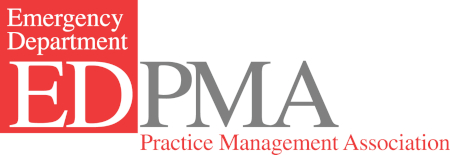
NSA I-Tact
If you are joining/unjoining a community, please email info@edpma.org so we can forward Outlook... View more
06.10.24 I-TACT Meeting Notes
-
06.10.24 I-TACT Meeting Notes
Quick Recap
The team discussed various issues including the interpretation of the 90-day cooling rule, the distribution of a press release related to their latest study, and the need to address issues with the current system. They also deliberated on the prevailing rate in IDR, the need for a valid QPA formula, and the strategy for Work Group A. Legal issues between Work Group B and Work Group C, and the idea of having health plans attest to their QPA compliance calculation methods were also discussed.
Next StepsMatt to follow up with the Doctors Caucus on the proposed letter to HHS requesting the release of the IDR Operations rule.
Cathey to send the press release on the latest study to various stakeholders, including Bloomberg, staffers on the Hill, and other organizations like RBMA, ASA, and ACEP.
Ed to finalize the letter to health plans and AHIP regarding non-compliance with the No Surprises Act, and share it with Randy for discussion at the NSA Task Force.
Ed to finalize the letter to IDREs regarding the flawed QPA calculation methodology, and share it with Randy for discussion at the NSA Task Force.
Work Groups A, B, and C to continue their respective tasks on drafting letters to health plans, IDREs, and Congress regarding the QPA calculation methodology and non-compliance with the No Surprises Act.
New Members, Technical Issues, and Advocacy
Ed welcomed everyone to the meeting, including a new member of the IT force, Jess. A request was made by EDPMA for Tony’s assistance in amplifying a member advocacy alert in Ohio. It was also noted that everyone was aware of the antitrust policy. Jess introduced herself and her role in handling claims from initial to final award.
Resolving 90-Day Cooling Rule Interpretation
Stephanie Caruso is working with Bob on resolving the inconsistent interpretation of the 90-day cooling rule by some IDREs. Ed mentions that Stephanie has sent the regulation language to the IDRs, who forwarded it to CMS for clarification. Regarding the proposed IDR Operations rule, EDPMA states that it is not officially late yet, but there is a reference suggesting it should be released by the following Saturday. A letter may be drafted jointly with the ‘doc caucus’ if the rule is not released by then. Randy acknowledges Bob’s involvement with the cooling rule issue.
Press Release Distribution Strategy Discussion
Ed, Randy, and Cathey discussed the strategy and timing for the distribution of a press release related to their latest study. EDPMA planned to send the release to their contacts at Bloomberg and other media outlets, as well as to their staff. The release would be posted the next day, and a social media campaign promoting the release would begin. Randy suggested a “step-wise promotion” strategy, while Ed favored a full-on approach. The team also considered sharing the release with stakeholders.
Discussing Prevailing Rates and Success Rates
There was a discussion about the prevailing rate in IDR, with Tony questioning the accuracy of the 71% prevailing rate based on his experiences. The team debated whether it would be more beneficial to report a higher or lower success rate, with Randy suggesting the use of anecdotal evidence to support a higher rate. Greg shared some interesting findings on the prevalence of IDRE decisions in different markets and payers. Tom expressed understanding of Tony’s perspective, as expressed in a February report, and suggested that the best narrative should combine the second and third points on the screen to avoid creating an argument. He noted that the team was only submitting 33% of the time, either because they didn’t expect to win or due to the laborious process, but emphasized that they were still winning the majority of the time, often by a considerable margin.
Addressing System Issues and Patient Costs
The team discussed the need to address issues with the current system, particularly regarding repeated submissions and unreasonable initial payments. They debated over claims made by Secretary Becerra about providers overwhelming the system, with Randy suggesting a quick response to control the narrative. Kathryn raised concerns about changes in patient cost sharing and the denial of coverage for out-of-network emergency services, proposing a draft letter to be sent to insurance companies and trade associations. The team deliberated on potential signatories for this letter, including stakeholder groups, and agreed to finalize the content before deciding on the signatories.
Team Feedback on Work Group Letters and Legal Issues
Ed asked the team to provide their feedback and thoughts on the letter he sent to them. The team planned to finalize the content in the next week. The conversation then turned to the legal issues between Work Group B and Work Group C, with Bob’s write-up explaining that the provisions in question will not be reinstated, regardless of the appeal outcome. Tom then presented three options for a new letter, and the team was asked to review it.
Health Plans’ QPA Compliance Attestation Discussion
Ed and Jennifer discussed Jeff’s idea of having health plans attest to their QPA compliance calculation methods. Tony argued against giving plans an opportunity to attest, stating that there is no valid QPA formula after the court ruling. Randy mentioned Brenna had already sent letters to certified IDR entities reinforcing this point. The team agreed to communicate clearly that there is no valid QPA for plans to attest to.
Attestation and Validity of QPA Usage
Tom and Ed discussed the requirement for their teams to attest to the use of the QPA in accordance with the law and the TMA III decision. Tom suggested that they should not test every single time they use a QPA, but rather attach the calculated QPA to their IDRE in accordance with the law. Ed agreed and mentioned that the steering group has decided to provide language to their members for this purpose. Randy proposed that they should make a generic statement implying that the QPA is being done according to the current stipulations in law, regulation, and judicial decisions. Tony suggested that they should inform the IDREs that the QPA has been deemed invalid due to the lack of a valid formula, and therefore any attestation or statement that the QPA is valid is inconsistent with the facts. The team agreed that EDPMA and ACEP should directly communicate this message to theIDREs.
Prior Payments and Qpa Adjudication
Andrew Sama proposed the idea of using prior payments as a more favorable adjudication in the absence of a valid QPA, though Tony cautioned that this would be in violation of the current law. The team agreed on recommending that prior contracts should be given more weight in submissions. Tom suggested that since the methodology for the QPA was determined to be flawed and overturned by the courts, it would be more accurate to advise waiting until a legal methodology is established. He also shared an anecdote about an arbitrator who had stopped processing IDRs due to lack of guidance and training from the employing entity.
QPA Calculation Methodology Discussion
Jennifer and Randy proposed that while members should be informed about the flaws in the QPA calculation methodology, they should not be explicitly told not to consider it. Instead, they recommended highlighting the lack of standard and enforcement discretion. The team agreed on drafting a letter to the IDREs, with a cover letter to be sent to Congress and other regulatory bodies. Tom suggested that individual alerts to the IDREs could be used as the basis for the Congress letter. The team also discussed the idea of having members write to the major insurance plans about the QPA methodology.
Work Group a Strategy and Follow-Ups
Ed and Randy discussed the strategy for Work Group A, focusing on incorporating the group’s feedback. They decided that Matt, who had relevant information from Murphy’s representative, should follow up on the 90-day cooling issue with the Doc Caucus. They also planned to discuss the “no surprises” presser and a related document offline. The next full IT call was scheduled for the 24th, with work groups meeting intermittently before then.
-
This discussion was modified 1 year ago by
 Cathey Wise.
Cathey Wise.
-
This discussion was modified 1 year ago by
Sorry, there were no replies found.
Log in to reply.
